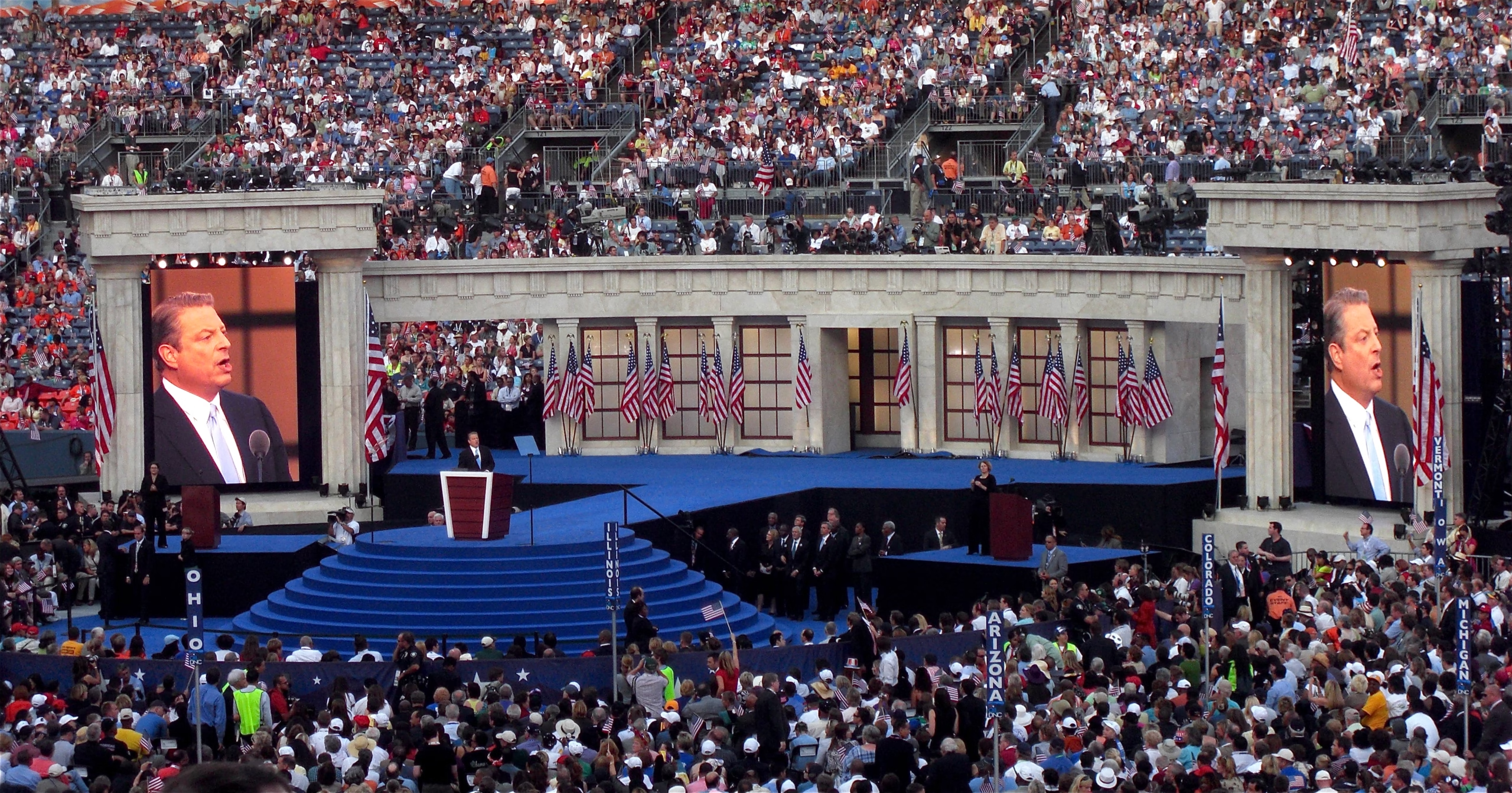Title: Democratic Party Delays Vote on Israel–Gaza Policy as Internal Conflict Grows

At its summer meeting in Minneapolis on August 26, 2025, the Democratic National Committee (DNC) faced strong disagreements over how to respond to the war in Gaza. A young DNC member from Florida, 26-year-old Allison Minnerly, introduced a resolution that asked the party to call for a stop to U.S. military aid to Israel, support an international arms embargo, and officially recognize Palestine as a state.
However, the DNC’s Resolutions Committee rejected Minnerly’s proposal before it could go to a full vote. Minnerly said in response, “We need to continue this conversation. Palestinian rights and dignity are just too important to ignore at a time like this.” Her effort was supported by progressive members of the party and peace groups who argue that U.S. weapons are contributing to suffering in Gaza.
At the same meeting, DNC Chair Ken Martin presented a second resolution. His version did not mention military aid but called for a ceasefire, more humanitarian assistance for Gaza, the release of hostages, and renewed support for a two-state solution between Israel and Palestine. The Resolutions Committee approved Martin’s resolution, but shortly afterward, he withdrew it. He said party members were too divided and instead announced a task force to study the issue and report back before the next national meeting in December.
Martin said the goal is to bring unity: “We are a big tent party. We need to bring people together, not tear them apart.” But critics, including The American Prospect, accused the DNC of avoiding a moral decision. In a published article, the magazine called the leadership’s choice “strategically and morally idiotic.”
This moment shows a growing conflict between the Democratic Party’s progressive base and its more traditional leaders. While no final decision was made, many expect the debate over U.S. support for Israel to continue to divide the party as the 2026 election season begins.
Español
El Partido Demócrata retrasa votación sobre política hacia Israel y Gaza en medio de tensiones internas
En su reunión de verano en Minneapolis, el 26 de agosto de 2025, el Comité Nacional Demócrata (DNC) enfrentó fuertes desacuerdos sobre cómo responder a la guerra en Gaza. Allison Minnerly, una joven miembro del DNC de Florida, de 26 años, presentó una resolución que pedía que el partido solicitara el fin de la ayuda militar de EE. UU. a Israel, apoyara un embargo internacional de armas y reconociera oficialmente a Palestina como un estado.
Sin embargo, el Comité de Resoluciones del DNC rechazó la propuesta de Minnerly antes de que pudiera someterse a votación general. En respuesta, Minnerly declaró: “Necesitamos continuar esta conversación. Los derechos y la dignidad del pueblo palestino son demasiado importantes para ignorarlos en momentos como este.” Su iniciativa fue apoyada por miembros progresistas del partido y grupos por la paz, que creen que las armas de EE. UU. están alimentando el sufrimiento en Gaza.
En la misma reunión, el presidente del DNC, Ken Martin, presentó otra resolución. Su versión no mencionaba la ayuda militar, pero pedía un alto al fuego, más ayuda humanitaria para Gaza, la liberación de rehenes y apoyo renovado a una solución de dos estados entre Israel y Palestina. Aunque el Comité de Resoluciones aprobó la propuesta de Martin, él la retiró poco después. Afirmó que el partido estaba demasiado dividido y anunció la creación de un grupo de trabajo para estudiar el tema y dar un informe antes de la próxima reunión nacional en diciembre.
Martin explicó que el objetivo es mantener la unidad: “Somos un partido amplio. Necesitamos unir a la gente, no dividirla.” Pero críticos, como la revista The American Prospect, acusaron al DNC de evitar una decisión moral. En un artículo, la revista describió la postura del liderazgo como “idiota desde el punto de vista estratégico y moral.”
Este momento refleja un conflicto creciente entre la base progresista del Partido Demócrata y sus líderes más tradicionales. Aunque no se tomó una decisión final, muchos esperan que el debate sobre el apoyo de EE. UU. a Israel siga dividiendo al partido a medida que se acercan las elecciones de 2026.